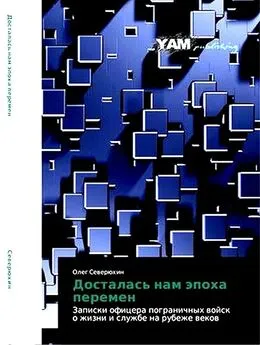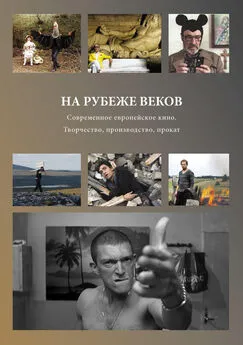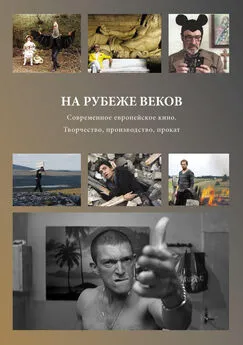Марк Дери - Скорость освобождения: киберкультура на рубеже веков
- Название:Скорость освобождения: киберкультура на рубеже веков
- Автор:
- Жанр:
- Издательство:неизвестно
- Год:неизвестен
- ISBN:нет данных
- Рейтинг:
- Избранное:Добавить в избранное
-
Отзывы:
-
Ваша оценка:
Марк Дери - Скорость освобождения: киберкультура на рубеже веков краткое содержание
Книга Марка Дери, известного американского публициста, "Скорость убегания: киберкультура на рубеже веков" посвящена широкому спектру явлений киберкультуры. Автор рассказывает о связи киберкультуры 90-х годов с контркультурой 60-х, о влиянии компьютерных технологий на становление целых направлений искусства - электронной музыки и роботокультуры. Отдельные главы книги посвящены компьютерному боди-арту, проблеме сексуальных отношения в Интернете и перспективе появления киборга. Анализируя отдельные книги, картины, инсталляции и практики, автор пытается разобраться с тем, какими путями современная кнберкультура приведет человечество к управлению эволюцией человеческой природы.
Скорость освобождения: киберкультура на рубеже веков - читать онлайн бесплатно полную версию (весь текст целиком)
Интервал:
Закладка:
69
R.U. Sirius. New World Disorder: All is NOT One / Mondo 2000 № 4. P. 9.
70
D. H. Lawrence. A Sane Revolution / The Complete Poems of . H. Lawrence. New York. 1971. P.517.
71
Vivan Sobchack. New Age Mutant Ninja Hackers: Reading Mondo 2000 / Flame Wars: The Discourse of Cyberculture // South Atlantic Quarterly. V. 92. № 4 (fall 1993). Pp. 573-574.
72
R.U. Sirius (rusirius), topic 288. Flame Wars: The Discourse of Cyberculture by Mark Dery / WELL's Mondo conference. February 21. 1994.
73
R. U. Sirius. The New Species Comes of Age / High Frontiers № 4. 987. P. 6.
74
Martha Sherril. Virtually Unreal! A Mag for the Millenium / Washington Post. February 19. 1992. P. C2.
75
Richard Scheinin. Tune In, Log On, Drop Out / San Jose Mercury News. May 30. 1989. P. 8F.
76
Norman Spinrad. Science Fiction in the Real World. Southern Illinois University Press. 1990. P. 133.
77
R.U. Sirius. Upwingers: Looking for Solutions in the Solution Box / High Frontiers, annual. 1987. P. 26.
78
Alvin Toffler. The Third Wave. New York. 1981. P. 166.
79
Wes Thomas. NanoCyborgs. Mondo 2000 № 12. 1994. P. 16.
80
R. U. Sirius. Topic 22. Flame Wars / WELL's Mondo conference.
81
R. U. Sirius. Sirius' Soapbox / High Frontiers, annual. 1987. P. 3.
82
Hakim Bey. Pirate Utopias and the Temporary Autonomous Zone / Mondo 2000 № 5. P. 128.
83
Ibid.
84
Gracie and Zarkov. An Acid Take on Camille Paglia / Mondo 2000 № 5. P.118.
85
William L. O'Neill. Coming Apart: An Informal History of America in the 1960s. New York. 1971. P. 265.
86
Ibid. P. 240.
87
Цитата по: Richard Scheinin. Tune In; Leslie Harlib. Alison in Wonderland / The Monthly. December 1990. P. 10.
88
Catherine McEver. Sex, Drugs & Cyberspace / Express. September 28, 1990. P. 12.
89
Homo Technoeroticus / Mondo 200 advertising brochure.
90
Ellen Willis. Let's Get Radical: Why Should the Right Have All the Fun?" / Village Voice. December 20. 1994. P.33.
91
R. U. Sirius. Upwingers. P. 26.
92
Ibid. Pp. 26-27.
93
Gitlin. The Sixties. P. 227.
94
Douglas Rushkoff. Op cit. P. 232.
95
Laura Fraser (phraze), topic 266. Future Sex — the Magazine: Feedback and Discussion / the WELL's sex conference. June 29. 1992; July 2. 1992.
96
Douglas Rushkoff. Op. cit. P. 21, P. 37, P. 59.
97
Sigmund Freud. Totem and Taboo. New York. 1950. P. 87.
98
Douglas Rushkoff. Op. cit. P. 7.
99
Все цитаты по: Ibid. P. 13, P. 48, P. 61, P. 67, P. 77.
100
Ibid. 23.
101
Ibid. 5.
102
Manuel de Landa. War in the Age of Intelligent Machines. New York. 1991. P. 15.
103
Ibid. P. 7.
104
Ibid. P. 121.
105
Ibid.
106
Том Вулф. Указ. изд. С. 193-194.
107
Douglas Rushkoff. Op. cit. P. 7.
108
Marshall McLuhan. Playboy Interview / Playboy. March 1969. P. 72.
109
Цитата по: Stephen Toulmin / The Return to Cosmology: Postmodern Science and the Theology of Nature. Berkeley. 1982. P. 124.
110
Marshall McLuhan. Op. Cit. P. 72, P. 158.
111
Pierre Teilhard de Chardin. The Future of Man. New York. 1969. Pp. 275-276.
112
Paul Keegan. The Digerati! / New York Times Magazine. May 21. 1995. P. 42.
113
Ibid. P.42, P. 88.
114
Ibid.
115
Gary Wolf. Don't Get Wasted, Get Smart / Rolling Stone. September 5. 1991. P. 60.
116
Craig Bromberg. In Defence of Hackers / New York Times Magazine. April 21. 1991. P. 47.
117
Hugh Ruppersberg. The Alien Messiah / Alien Zone: Cultural Theory and Contemporary Science Fiction Cinema. New York. 1990. P. 35.
118
Douglas Rushkoff. Op. Cit. P. 61.
119
Ibid. P. 147.
120
Все цитаты здесь по: Ibid. P. 19, P. 172, P. 189, P. 214.
121
Walter Kirn. Cyberjunk / Mirabella. June 1993. P. 24.
122
Ibid.
123
Цитата по: Joe Haldeman. Star Trek: World without End. New York. 1979, эпиграф на первой странице.
124
Цитата по: Margot Adler Drawing Down the Moon: Witches, Druids, Goddess-Worshippers, and Other Pagans in America Today. Boston. 1986. P. 368.
125
Учитывая традиционную связь между наукой с техникой, я не стал делать акцента на различиях неоязычества и Нью Эйджа в этом разделе. Тем не менее, следует отметить, что, хотя оба направления отдают дань уважения Земле и религиозным верованиям автохтонных народов и древних цивилизаций, неоязычники и приверженцы Нью-Эйджа воспринимают себя как два диаметрально противоположных полюса, воплощающих соответственно землю и воздух, хтоническое и небесное.
126
Erik Davis. Technopagans: May the Astral Plane Be Reborn in Cyberspace / Wired. July 1995. P. 128.
127
Julian Dibbell. Cool Technology: Toys for the Mind / Spin. May 1991. P. 50.
128
Ibid.
129
Lurker Below (ashton), topic 316. Thee Temple ov Psychick Youth / WELL's spirituality conference. December 20. 1992.
130
Neil Strauss. Tripping the Light Ecstatic: Psychic TV & the Acid House Experience / Option. № 25 (March / April 1989). P. 84.
131
Ambient Temple Imagination. Mystery School. Silent Record. 1994.
132
Цитата по: Mattew F. Riley. Clock DVA: Energy Tending to Change / Technology Works, без указания номера журнала и без нумерации страниц.
133
Ibid.
134
Edward Rothstein. A New Art Form May Arise from the 'Myst' / New York Times. December 4, 1994. Sect. 2. P. 1.
135
Erik Davis. Into the Myst: The Miller Brothers' Virtual Tale / Village Voice. August 23. 1994. P. 45.
136
Ibid. P. 46.
137
Norman Spinrad. Op. Cit. P. 111.
138
William Gibson. Mona Lisa Overdrive. New York. 1988. P. 215.
139
William Gibson. Count Zero. New York. 1986. P. 118–119. Цит. в переводе А. Комаринец и Е. Летова.
140
Erik Davis. Techgnosis: Magic, Memory, and the Angels of Information / Flame Wars: The Discourse of Cyberculture // South Atlantic Quarterly. V. 92. N. 4 (fall 1993). P.586.
141
Ibid.
142
Maxwell X. Delysid. E-mail to the author. December 2. 1992.
143
Charles B Kramer. Nazis in Cyberspace! / BBS Caller Digest. August 1992. P. 28.
144
Ken Kelley. The interview: Whole Earthling and Software Savant Stewart Brand / SF Focus. February 1985. P. 78.
145
Цитата по: Zaehner R. C. Teilhard de Chardin / Man, Myth & Magic. V. 10. New York. 1983. P. 2811.Tools for Exploration. V. 4. № 1 (winter/spring 1994-95). P. 55.
146
Tools for Exploration. V. 4. № 1 (winter/spring 1994-95). P. 55.
147
Tools for Exploration. V. 4. № 2 (1993 supplement). P. 16.
148
Tools for Exploration. V. 4. № 1. P. A-3.
149
Michael Hutchinson. Mega Brain Power: Transform Your Life with Mind Machines and Brain Nutrients.New York. 1994. P. 431.
150
Tony Lane. Echo area 30. Cybermage / BaphoNet. August 7. 1991.
151
Rossel Hope Robbins. The Encyclopedia of Witchcraft & Demonology. New York. 1981. P. 190.
152
John Markoff. The Fourth Law of Robotics / Educom Review 29. № 2 (March/April 1994). P. 45.
153
Aga Windwalker. Cybermage. August 7. 1991.
154
Maxwell X. Delysid. E-mail to Mark Dery. December 2. 1992.
155
Charles Neal. Tape Delay. Harrow. 1987. P. 32.
156
Constance Penley. Close Encounters: Film, Feminism, and Science Fiction. Minneapolis. 1991. P. X.
157
Andrew Ross. Strange Weather: Culture, Science and Technology in the Age of Limits. New York. 1991. P. 30.
158
Godfrey Harold Hardy. A Mathematician's Apology / The World Treasury of Physics, Astronomy, and Mathematics. Boston. 1991. P. 439.
159
Rudy Rucker. Mind Tools: The FiveLevels of Mathematical Reality. Boston. 1987. P. 223.
160
John L. Casti. Searching for Certainty: What Scientists Can Know about the Future. New York. 1990. P. 404.
161
BruceSterling. Cyber-Superstition / Science Fiction Eye. № 8 (winter 1991). P. 11.
162
GaryChapman. Taming the Computer / / Flame Wars: The Discourse of Cyberculture // South Atlantic Quarterly. V. 92. N. 4 (fall 1993). Pp. 830-831, P. 837.
163
Joseph Campbell, Bill Moyers. The Power of Myth. New York. 1988. P. 19.
164
Ibid. P. 18.
165
Christopher Evans. The Micro Millenium. New York. 1979. P. 233, 262.
166
Tracy Kidder. The Soul of a New Machine. New York. 1981. P. 98.
167
Is Computer Hacking a Crime? / The Harpers's Forum Book: What Are We Talking About. New York. 1991.Pp. 256-257.
Читать дальшеИнтервал:
Закладка:






![Александр Солженицын - Русский вопрос на рубеже веков [сборник]](/books/1117268/aleksandr-solzhenicyn-russkij-vopros-na-rubezhe-veko.webp)



